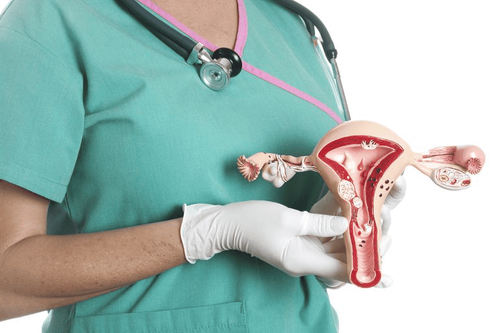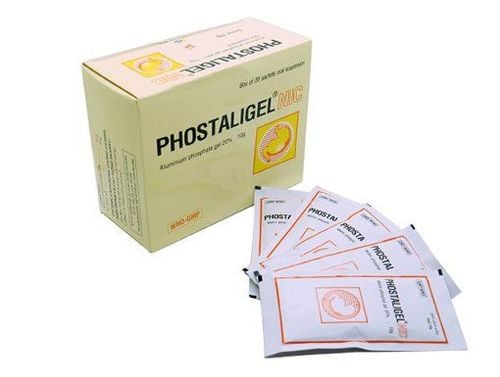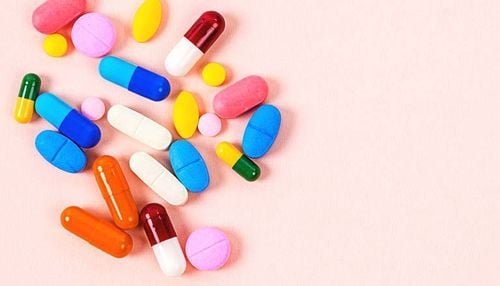This is an automatically translated article.
Acid reflux is a common and increasingly common disease in the community, with a chronic nature. In many cases, gastric reflux affects the quality of life and the treatment costs are large, and the treatment time is long.
1. Causes of gastric reflux
To support smooth and regular digestive activities, from the digestive tract to the esophagus, stomach, small intestine and colon all have downstream peristalsis to help push food down. In some segments, there will be circular muscles that open and close rhythmically combined with those peristalsis to let food pass.
Normally, there is still little gastric juice pushed from the stomach back up into the esophagus (after eating, when lying down ...), but the amount is very small, insignificant and esophageal peristalsis also works immediately to push it out. gastric juice back into the stomach. The acidity of this amount of gastric juice also does not affect the esophageal mucosa because it is too small, transient, and is also inactivated by many protective factors of the esophagus.
Acid reflux occurs when esophageal peristalsis is too weak, not enough force to push back that amount of refluxed gastric juice, mainly due to the following reasons:
Decreased pressure of the lower esophageal sphincter (the junction at the junction) with the stomach), or because this sphincter does not close tightly, leading to reflux of gastric juice; Contraction disorder or asynchrony of gastric - esophageal activity; Hernia of the esophageal hiatus ; Decrease or loss of esophageal motility in certain pathologies such as scleroderma; Stomach cancer ; In addition, the following factors also increase the risk of gastroesophageal reflux:
People with increased pressure in the abdomen (obese, overweight, pregnant women, people with enlarged ascites .. .); Hypercalcemia ; Prolonged use of drugs such as Prednisolone; The patient is being fed through a nasogastric tube.
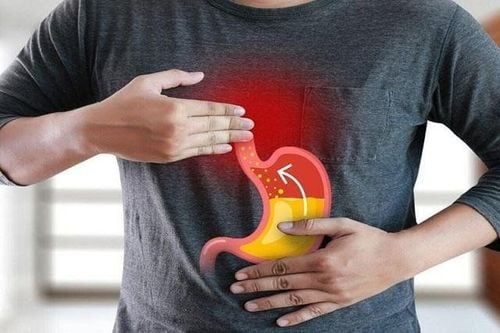
Trào ngược dịch vị xảy ra khi nhu động thực quản quá yếu
2. Consequences of gastric reflux
Normally, the lining of the esophagus is protected from gastric acid by the following factors:
Peristalsis of the esophagus pushes gastric juice back into the stomach; Neutralize gastric acid by swallowing (strongly alkaline) saliva; The mucosal layer and the epithelial barrier have bicarbonate-secreting mucinous cells that help eliminate the excess acid; However, if too much reflux of gastric juice passes through the protective rings above, it will cause pathologies in the esophageal mucosa (mainly in the lower 1/3, sometimes spreading to the upper segment). Manifestations range from red, edematous inflammation to mucosal ulceration, esophageal stricture, mucosal structural changes with intestinal metaplasia and dysplasia (Charrett's esophagus) precursors of esophageal cancer. At a mild level, the disease has 2 main manifestations: burning after the evil bone and frequent heartburn. The patient may have a feeling of choking behind the bone, but drinking water and swallowing food are normal, without problems.
If acid reflux is not treated, the above symptoms will increase, not only burning behind the bone but also burning in the pharynx, causing the patient to cough, have difficulty breathing and possibly bronchitis. due to aspiration of gastric juice, increasing the risk of serious diseases such as esophageal and stomach cancer.
To diagnose and confirm the disease, the doctor may prescribe the upper gastrointestinal endoscopy method combined with biopsy (if necessary). Endoscopy can also help detect physical causes that facilitate reflux of gastric juice such as diaphragmatic hernia, thereby providing appropriate treatment.
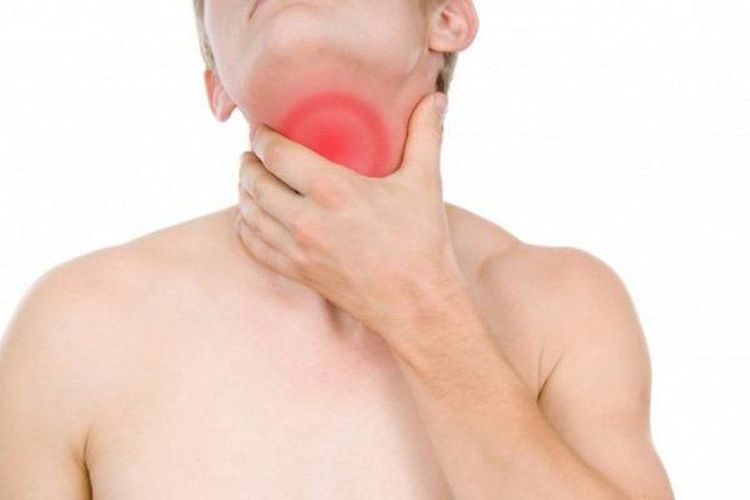
Người bị tăng áp lực ở ổ bụng sẽ làm tăng nguy cơ của trào ngược dịch vị dạ dày thực quản
3. Remedies for gastric reflux
To treat acid reflux, patients may need to use antacid drugs such as: Maalox, Gastropulgite... containing Magnesium and Aluminum to help increase pH in the stomach quickly, thereby reducing symptoms. express. However, the disadvantage of the drug is the short duration of action (only 1-2 hours) and can cause diarrhea with drugs containing magnesium and constipation with drugs containing aluminum. In addition, H2 blockers also work to reduce gastric secretion quickly, but the disadvantage is that they are less effective in cases of severe reflux esophagitis and have a high recurrence rate. Currently, the good drugs to reduce gastric secretion are recommended to use are proton pump inhibitors (PPIs) such as Pantoprazole, Omeprazole... and especially effective is Esomeprazole.
Surgical measures are also considered when drug therapy is not successful. Mainly applied to cases with severe complications in the esophagus such as: esophagitis grade III, grade IV, Barrett's esophagus, bleeding or ulceration, narrowing of the esophagus; slit hernia...
To prevent acid reflux disease, patients need to adjust lifestyle changes, avoid stress and pressure at work. Avoid fatty foods or gas-producing substances (such as carbonated drinks) at dinner; avoid eating anything more after 20 hours; do not lie down immediately after eating and sleeping; quit alcohol, tobacco; lose weight and increase movement; head high. However, these measures only work for patients with acid reflux in the mild stage of the disease. If the diagnosis of structural heart disorder, diaphragmatic hernia or pyloric stenosis is diagnosed, it is necessary to consult a doctor and consider whether to surgically intervene with laparoscopic or surgical intervention.
Please dial HOTLINE for more information or register for an appointment HERE. Download MyVinmec app to make appointments faster and to manage your bookings easily.




